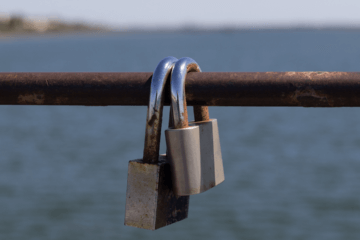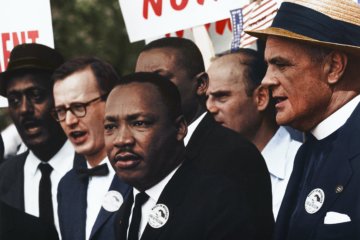Do you understand the power of forgiveness?
So far, we’ve examined eleven laws that, when followed, will lead you to a life of significance. By now, you probably have a good sense of why that journey is so difficult, yet worthwhile…
I hope that, along the way, I’ve challenged your sacred cows, that you’ve experienced a shift in how you think about and relate to your everyday life…
But how do you know you’re really living these laws?
During my executive coaching sessions, I ask this question constantly…
Because significance is ultimately about action, not merely thought.
The difference between success and significance resides in how we deal with conflict
Often we think we’re living significant lives, only to find that we falter embarrassingly in moments of conflict with others.
I have the privilege of meeting people from all over the world during my engagements as a keynote speaker, and have heard stories that are threads of the same fabric: unresolved conflict.
When we’re upset and we raise our voices, judge with prejudice, put others down, lose our calm, fail to listen, become irrational, or get moody and depressed, this is not caused by whatever is applying the pressure on us.
This is latent anger peeking out, the legacy of past, unresolved conflicts.
“Successful people” can and do attempt to move beyond past conflicts by merely offering apologies – expressions of remorse – for their transgressions.
While that’s important, it doesn’t go far enough to get at the root of the problem. There is a way to ensure that egotism and the fires of anger have truly been extinguished.
Apologies are the beginning of the journey to a life of significance
It’s imperative that we go beyond proffering apologies.
We must also humble ourselves enough to forgive those who have wronged us unconditionally and forgive ourselves. We will be teachable enough to…
- Obey
- Persevere
- Stretch
- Trust
- Seek whole truth
- Win
- Do right
- Experience harmony
- Accept others
- Strive to be loved and needed
- Establish a covenant to serve
- Forgive
True, deep forgiveness can be challenging to bestow, and many of us never even come close to managing it.
Yet psychiatrists, psychologists, and psychotherapists all confirm that everyone in the world can and should forgive, and if significance is what you seek, you have no other choice.
Four Suggested Action Steps for Learning to Forgive Unconditionally
1. Check yourself at the door
At the first approach of anger, remind yourself that you’ve voiced your insensitive opinion in an emotionally fueled conversation. You’ve disappointed a loved one. You’ve angered an associate. You’ve made a hard choice that left someone broken-hearted.
Remember that you, too, have needed someone to give you a break for you to continue, and that what goes around comes around.
The quickest way to get back at those who harm us physically or emotionally is to forgive them and shower them with service, positive energy, and fellowship.
2. Understand the nature of power
At work, remember that humans naturally tend to exercise unrighteous dominion the minute they gain a little bit of power.
But no power, influence, or judgment can or ought to be maintained except by persuasion, gentleness, meekness, and kindness.
If you reprimand another sharply, be sure to show that person a display of unconditional forgiveness.
3. Embrace dissension
Avoid prejudging by realizing that similarity creates comfort while difference creates rewards and importance.
If two people agree on everything, it means one of them is not necessary.
Everyone brings a unique skillset and perspective to the table. Exercise the humility to have someone offer an opposing view, weigh their input and encourage dialogue.
4. Make amends
Make a list of individuals who have offended you.
Go back as many years as necessary. Research where they live today, then swallow your pride and make arrangements to go and visit them – within reason, of course.
An e-mail or a text or a letter isn’t the best choice. It must be a face-to-face meeting, arranged in a quiet place where you can talk and cry and do whatever is required to bury the hatchet and forgive them…perhaps even rebuild the friendship.
Begin by visiting with your individual family members first, then friends, neighbors, and coworkers, and then your enemies.
Forgiveness leads to genuine peace and significance
I promise you. Take these four steps, and you will feel more loved, more needed, and more peaceful than you have ever felt in your entire life. It will turn your previous successes into lasting significance.
Would you like to start your journey towards a life of significance? Or, would you like to enrich your team’s abilities? Contact me, skillset and we can get started together.
Enjoyed this article? Here are three more you might enjoy:
The Difference Between Making Commitments and Covenants
What Is A Keynote Speaker?
Live In The Present, It’s A Gift That Can’t Be Replaced


